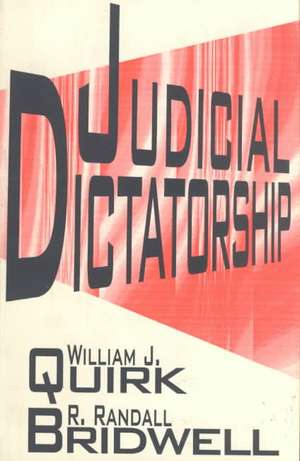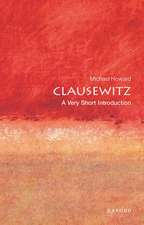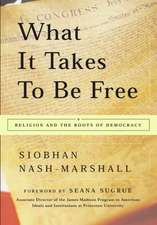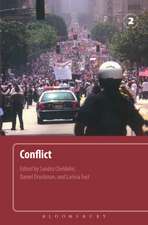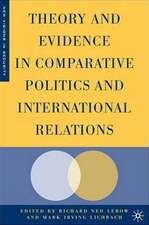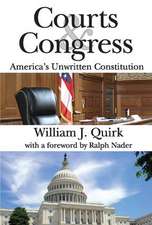Judicial Dictatorship
Autor William J. Quirk, Randall Bridwellen Limba Engleză Paperback – 30 ian 1995
| Toate formatele și edițiile | Preț | Express |
|---|---|---|
| Paperback (1) | 405.66 lei 6-8 săpt. | |
| Taylor & Francis – 30 ian 1995 | 405.66 lei 6-8 săpt. | |
| Hardback (1) | 764.20 lei 6-8 săpt. | |
| Taylor & Francis – 12 oct 2017 | 764.20 lei 6-8 săpt. |
Preț: 405.66 lei
Nou
Puncte Express: 608
Preț estimativ în valută:
77.62€ • 81.21$ • 64.48£
77.62€ • 81.21$ • 64.48£
Carte tipărită la comandă
Livrare economică 02-16 aprilie
Preluare comenzi: 021 569.72.76
Specificații
ISBN-13: 9781560009269
ISBN-10: 1560009268
Pagini: 160
Dimensiuni: 152 x 229 x 10 mm
Greutate: 0.2 kg
Ediția:1
Editura: Taylor & Francis
Colecția Routledge
Locul publicării:Oxford, United Kingdom
ISBN-10: 1560009268
Pagini: 160
Dimensiuni: 152 x 229 x 10 mm
Greutate: 0.2 kg
Ediția:1
Editura: Taylor & Francis
Colecția Routledge
Locul publicării:Oxford, United Kingdom
Notă biografică
William J. Quirk, Randall Bridwell
Cuprins
1: Thomas Jefferson’s Opinion of Judicial Review; 2: The Rule of Five; 3: Majority Rule; 4: The Result—A Society Designed by the Judiciary; Conclusion
Descriere
American society has undergone a revolution within a revolution. Until the 1960s, America was a liberal country in the traditional sense of legislative and executive checks and balances. Since then, the Supreme Court has taken on the role of the protector of individual rights against the will of the majority by creating, in a series of decisions, new rights for criminal defendants, atheists, homosexuals, illegal aliens, and others.
